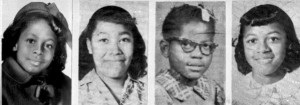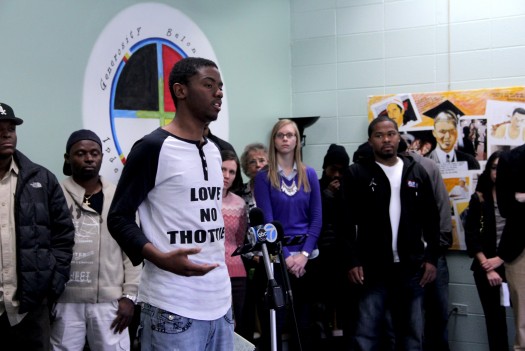Before yesterday, I’d never heard of Lily Allen. But then my Twitter feed exploded with criticisms of her new video for a song called “Hard Out Here.” So last night (while battling insomnia), I watched it and it was boringly predictable. It wasn’t shocking or provocative. Dating back to slavery, black women’s bodies and sexuality have been expropriated for white profit and pleasure. This isn’t new.
When I was in high school, I picked up a book called “We Are Your Sisters: Black Women in the Nineteenth Century” at my local library. It was the first time (but not the last) that I would come across a daguerrotype of an enslaved girl named Delia.
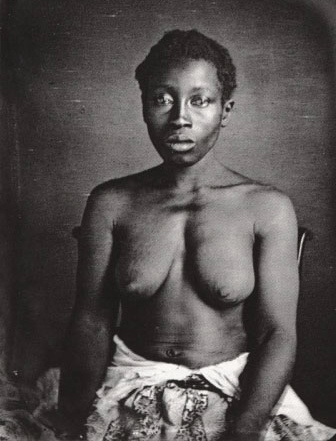
Delia (1850)
This photograph, which is thought to perhaps be the earliest made of an adolescent enslaved black girl, has been seared in my mind since I saw it when I was a teenager. Delia was compelled to sit naked for the purpose of having her body examined and documented. The photographs were commissioned by scientist & Harvard professor Louis Agassiz. Agassiz was studying the bodies of blacks to prove that we were a separate and inferior species. Delia’s body was not her own but public property.
I used to be fascinated with Delia’s photograph. I made a copy of it and pasted it in my journal. I think that I was 15 or 16 years old at the time. Her eyes reminded me of my cousin’s. I focused on her eyes. I was embarrassed by her nakedness. I didn’t know why. I didn’t have the words to convey the horrors of slavery. As I grew older, I realized that no one in this country does either. Therefore, it is difficult to represent or understand that which is unspeakable.
listen,
woman,
you not a noplace
anonymous
girl;
— Lucille Clifton
Watching Allen’s video reminded me that black women’s bodies have always been sites of both domination and resistance. The entire script of American chattel slavery was written on black women’s bodies. Control of our bodies was key to both the economic prosperity of slaveowners and to the subjugation of the entire black race. Adrienne Davis (2009) suggests that: “Enslaved black women gave birth to white wealth (p.229)” White people have been fighting to maintain their mastery over our bodies ever since. Black women have continued to resist this and to write our own body stories. And it’s been and is a mighty struggle (see the consistent policing of black girl dancing, for example).
To Lily Allen, consciously or subconsciously, black women are Delias. We are meant to be put on display, to be used as props for others’ pleasure & profit. We are just flesh & property. In the tradition of Agassiz, our anatomy is meant to be examined and prodded. The verdict is out as to whether we should still be considered an inferior species.
I
am a black woman
tall as a cypress
strong
beyond all definition still
defying place
and time
and circumstance
assailed
impervious
indestructible — Mari Evans
Yesterday, another black woman was on display, this time in front of a white judge in Florida. Her name is Marissa Alexander & she was in court to hear whether she would be granted bond and released until her re-trial. The judge made no decision on bond and set another status hearing for January 15. Marissa will likely spend another Christmas in jail. Sitting in the courtroom, Marissa’s body is inscribed with inherent criminality; already presumed guilty. Her blackness makes her both invisible and hyper-visible. I wondered what Lily Allen would have to say to and about Marissa. Then I thought better of it, what could anyone have to say to a chair? For Allen and her ilk, black women are chairs (inanimate objects) to sit on, to decorate their homes, and to eventually discard for a newer/shinier model. To Lily Allen, black women are Delia.
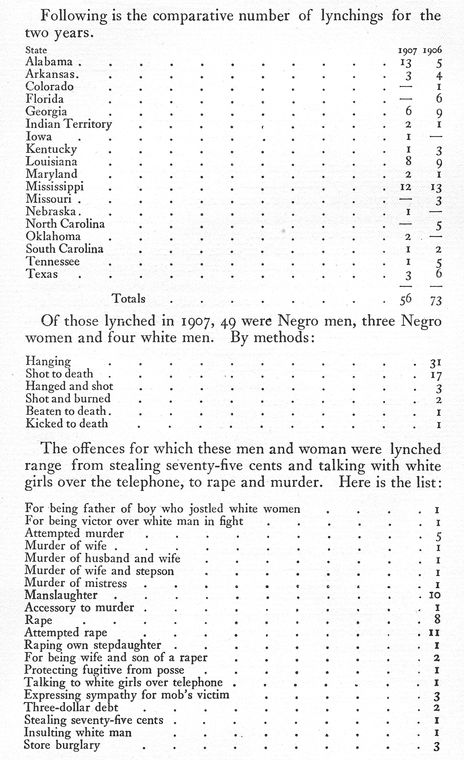


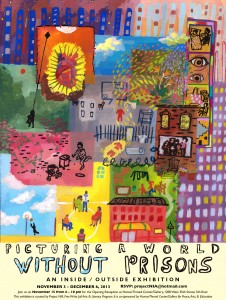
![Female prisoners in the fourth police station. [Female prisoners in the 4th police station.] (1872) - NYPL Digital Collection - From Lights and shadows of New York life, or, The sights and sensations of the great city. (Philadelphia : National Publishing Co., c1872) McCabe, James Dabney (1842-1883), Author.](https://www.usprisonculture.com/blog/wp-content/uploads/2013/08/womenprisoner1870-e1377668258948.jpg)

